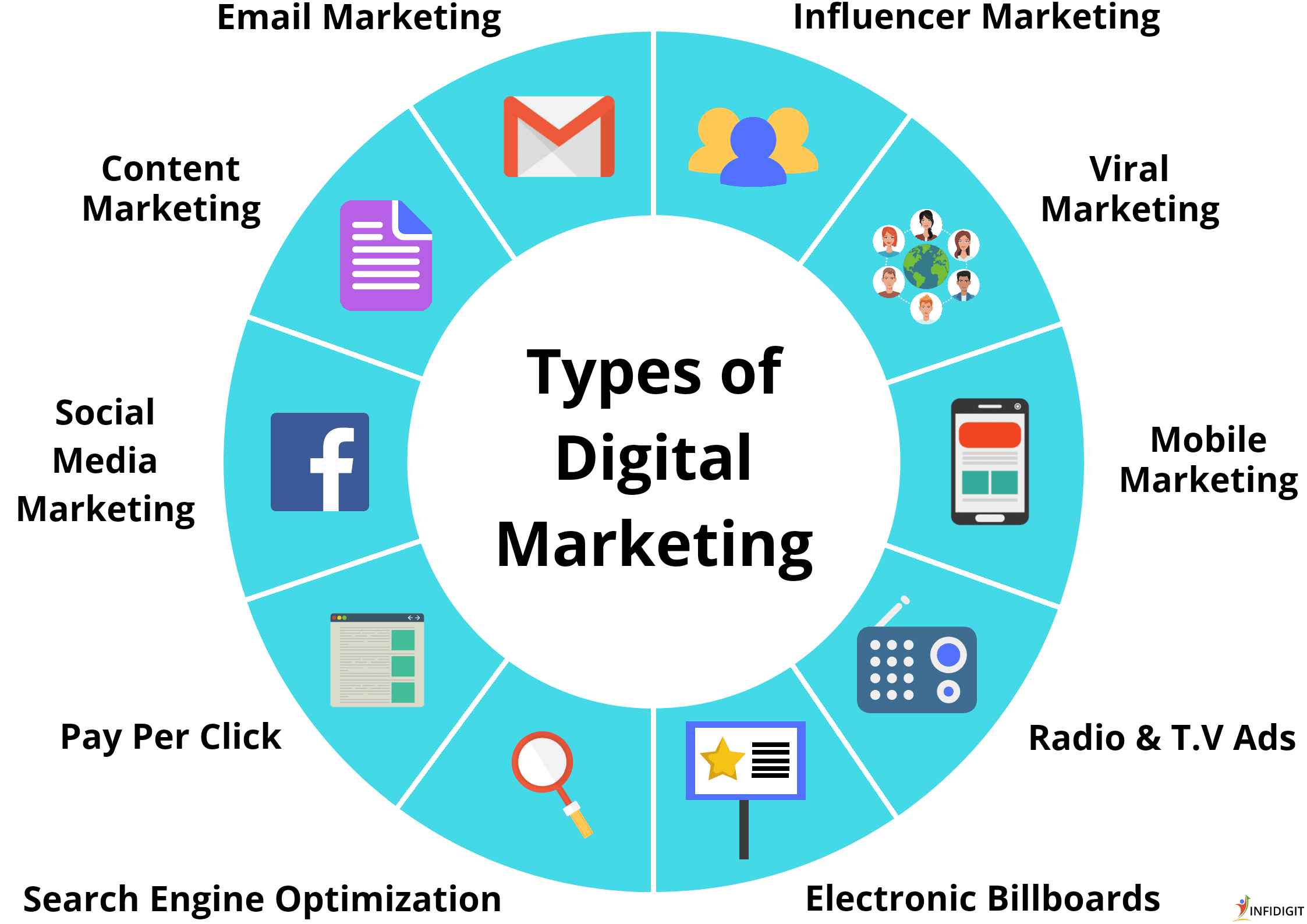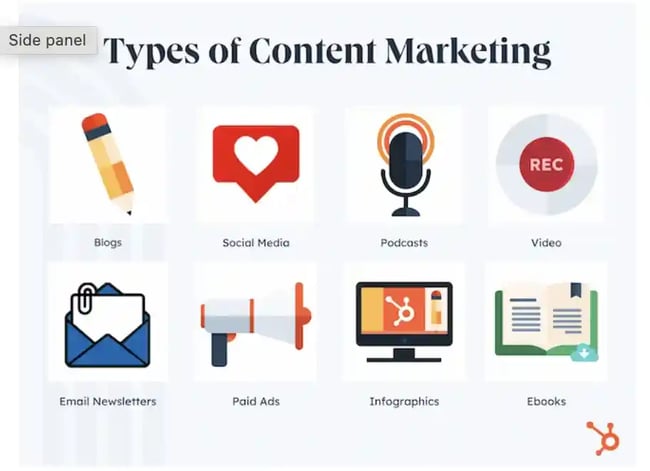What Is Digital Marketing And Why It Is Important For Business?

What Is Digital Marketing?
In today’s hyper-connected world, digital marketing has become the backbone of any business’s success. But what exactly is digital marketing? In simple terms, digital marketing refers to promoting products or services using digital channels such as websites, social media, search engines, emails, and mobile apps. Unlike traditional marketing, it leverages the power of the internet to reach a global audience in a cost-effective, measurable, and personalized way.
Digital marketing encompasses a wide array of strategies, including:
- Search Engine Optimization (SEO): Enhancing your website’s visibility on search engines like Google, so it appears at the top of search results when people look for related products or services.
- Social Media Marketing: Using platforms like Facebook, Instagram, and LinkedIn to connect with your audience, build brand awareness, and drive traffic to your site.
- Email Marketing: Sending personalized messages to potential and existing customers to build relationships and encourage conversions
- Content Marketing: Creating valuable and relevant content—such as blogs, videos, or infographics—to attract and engage your target audience.
- Pay-Per-Click (PPC) Advertising: Running paid ads that appear at the top of search engines or social media platforms, where advertisers pay a fee every time
- Affiliate Marketing:Partnering with other businesses or influencers who promote your products in exchange for a commission on sales
- Search engine optimization (SEO)
A foundational element of digital marketing, SEO is the practice of optimizing your website to rank higher in search engine results. When your website appears as a top result on Google and other search engines, people are more likely to click on your link, learn about your brand, and perhaps even become customers.There are three broad ways to improve your website’s SEO:
- On-page SEO involves optimizing the pages on your website by conducting keyword research. When you incorporate strategic keywords throughout your site, you can rank high on search engine results pages and guide customers through the sales funnel with relevant, authoritative content.
- Off-page SEOis about improving your SEO by looking at pages external to your website. Inbound links to your website—known as backlinks—are a critical component of off page SEO. Networking with publishers, writing guest posts, and providing information-rich content on your blog can help improve your off-page SEO.
- Technical SEO deals with the backend elements of your website such as coding, structured data, image compression and more. Optimizing these elements can make it easier for search engines to “read” your site and improve your page speed.
- Social Media Marketing
- YouTube
Another cornerstone of a strong digital marketing strategy is social media marketing. This involves promoting your brand on social channels in order to increase brand awareness, drive traffic to your website, and capture leads. You can do this by creating posts on popular social media channels such as:
Your posts can include anything from insightful blog articles to videos of your product in action. Choose channels on which your audience is most active; often, this is a factor of their demographics, such as age and location, as well as their interests. You can even invest in sustainable marketing in these channels, which has become popular as consumer demand for environmentally-friendly products has grown.
- Email Marketing
- Email campaigns promote products, provide special offers or coupons, or encourage people to sign up for a product or service.
- Email newsletters are sent on a consistent basis to provide subscribers with regular updates, such as new blog posts, industry news or upcoming events.
- Automated marketing emails are sent automatically based on predefined triggers, and they include welcome emails, birthday emails and reminder emails.
- Automated transactional emails include automatic order confirmations, shipping updates and appointment reminders.
You’ve almost certainly experienced email marketing in some form – in fact, you probably have branded emails sitting in your inbox right now. This popular digital marketing strategy involves communicating with your target audience via email with the goals of improving engagement, promoting products and driving conversions and sales.
Broadly speaking, there are four different types of marketing emails you can send to prospects and customers:
- Content Marketing
- Blog posts: Creating a blog – and using strategic, long tail keywords in your articles – is a great way to bring traffic to your site and engage your customers.
- Ebooks and white papers: Adding in-depth, long-form content to your website establishes your expertise in the industry and builds trust among your audience. You can also offer this content for download in exchange for your readers’ contact information, helping you generate leads.
- Videos: Website content doesn’t need to be in written form. Adding videos to your website is an engaging way to provide valuable information to your audience.
- Infographics: Another form of visual content, infographics are a fun, helpful way to make information easier for readers to conceptualize. Complex explanations and statistics are particularly well-suited to this content format.
- Podcasts: This audible content format is a useful way to strengthen your connection with your audience and build a loyal community around your brand. Content can be interview-based or niche-focused like Wix’s SERP’s Up SEO Podcast. To start a podcast, try repurposing existing website content, such as blog posts, and adapting it for audio.
- Webinars: A merging of “web” and “seminar,” webinars further engage your audience, establish your authority, and delight customers with the extra value they provide.
Closely tied to SEO, content marketing is also a core component of digital marketing. This involves creating and promoting content with the goals of building brand awareness, increasing traffic to your website, generating leads and converting customers.
The content you create can take many forms:
- Pay Per Click(PPC)
- Google: Search engine marketing PPC is most commonly associated with Google Ads. Take a look at this article to learn how to advertise on Google.
- Facebook: You can further use the pay per click model to advertise on Facebook. Creating paid Facebook posts helps you expand your reach, exposing your content to people who don’t follow you.
- bLinkedIn: You can also do PPC on LinkedIn, helping you get in front of professional audiences.
- Twitter: Likewise, you can use Twitter Ads to target your relevant audience and expand your reach.
Some digital marketing methods, such as blogging, SEO, and social media posting are organic—meaning that they draw traffic “naturally” to your business rather than requiring that you spend money directly. Other practices, however, come with a price tag.
PPC, an acronym for pay per click, is a particularly powerful form of paid online advertising. Like SEO, PPC is a type of search engine marketing, or SEM. If you’re familiar with posts labeled “Ad” at the top and bottom of Google search results pages, you’ve already seen PPC in action.
By this model, advertisers pay a fee every time their link is clicked. As with other forms of digital marketing, the goal of PPC is to drive traffic to a website in order to generate leads and make sales.
Generally, PPC is used on either search engines or social media platforms:
- Content Marketing
Affiliate marketing is a digital marketing practice in which one party, such as an influencer or a brand, receives a commission for promoting someone else’s products or services. For businesses, this practice is beneficial because it allows them to reach that party’s followers.
By the affiliate marketing model, a company provides that party (called the affiliate) with a special link, usually leading to a page to purchase their product. The affiliate, in turn, will post about that product (usually on their blog or social media pages), promoting the given link in their content. When users click on that link and buy, it’s a win-win for both the brand and the affiliate: the company makes a sale, and the affiliate earns a commission on that sale.
Brands can connect with affiliates using platforms such as ShareASale or CJ Affiliate, or by reaching out to influencers directly.
Why It Is Important for Business?
Why is digital marketing important? Well, there are a whole host of reasons that we will explore in this section, but in simple terms, it allows you to reach a larger audience and boost brand awareness.
All of the reasons we list here, if applied correctly, should help you to attract customers new and old and drive future sales.
Good for brand growth and awareness
Digital marketing levels the playing field and allows you to compete with bigger brands in your sector that otherwise wouldn’t be achievable.
The internet is home to a huge source of potential customers, so by marketing your brand using the above techniques we discussed, you’re able to target a lot more people than you would normally.
Using these different digital marketing channels, your brand will grow and become more widely recognised, helping to raise awareness about what you do and the products or services you sell.
Targets online customers
As of January 2023, there were 5.16 billion internet users worldwide, which means there are quite literally billions of people out there that may be interested in your brand.
Your customers are online waiting to discover your brand and a good digital marketing strategy will be able to tap into this potential. The more exposure your brand receives, the more likely you’ll attract new customers.
The majority of people now use the internet to find out about businesses, so you’d be crazy to not have an online presence and be involved in the conversation. If people can’t find your business online, then the chances are that they’ll choose a competitor and you’ll lose a potential customer.
Affordable
Digital marketing is a lot more cost-effective than traditional marketing methods, which is ideal for businesses that have limited funds and resources. You also have complete control over how you spend your money, targeting certain marketing streams depending on your needs. For example, using Google Ads or commissioning some time with a videographer.
It also allows you to be flexible with your money, pivoting to different marketing strategies when required. This reduces the risk of wasting precious finances and ensures money gets allocated effectively.
Measurable
Another great reason why digital marketing is important and superior to traditional marketing tools is that it’s measurable. With digital marketing, you’ll have access to a huge source of data and metrics, whether that’s impressions, views, time on a page, click rate, and so on. This means you can see accurate data in real-time.
This is invaluable when it comes to evaluating how well your brand’s digital marketing strategy is performing and allows you to reallocate time and money to other areas if a particular campaign is underperforming.
Not only will you be able to learn from your mistakes, but you’ll also be able to see how and why a campaign has been successful – using this knowledge to help move the business forward in the future.
Faster and more efficient
Implementing digital marketing strategies can also be a lot quicker and more efficient, as you’ll be able to start the process immediately.
Even if money or resources are a little tight, there are still things you can do to get the ball rolling and help improve your brand’s online presence, such as increasing social media post frequency and implementing some basic SEO on your website.
Some of the traditional marketing techniques can also be incredibly time-consuming, whereas digital marketing helps to free up precious time and reallocate it accordingly.